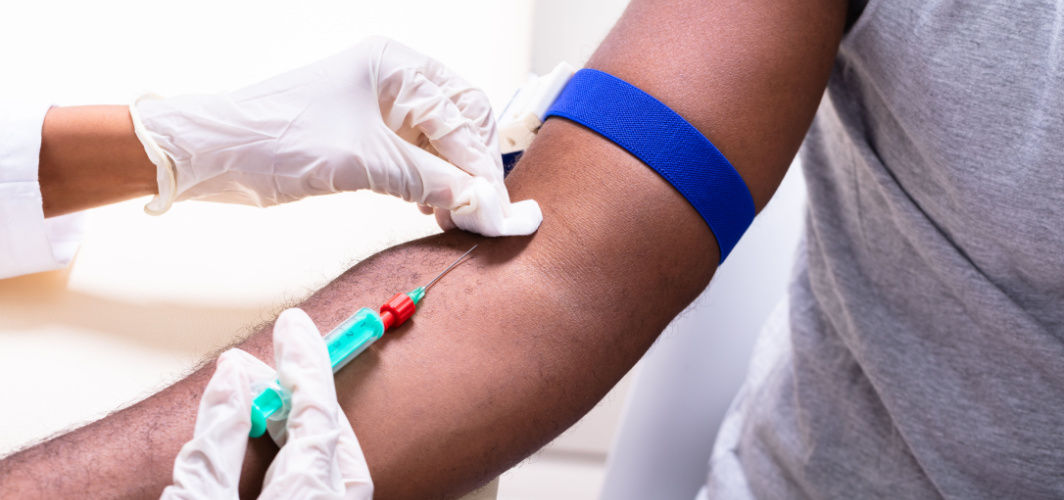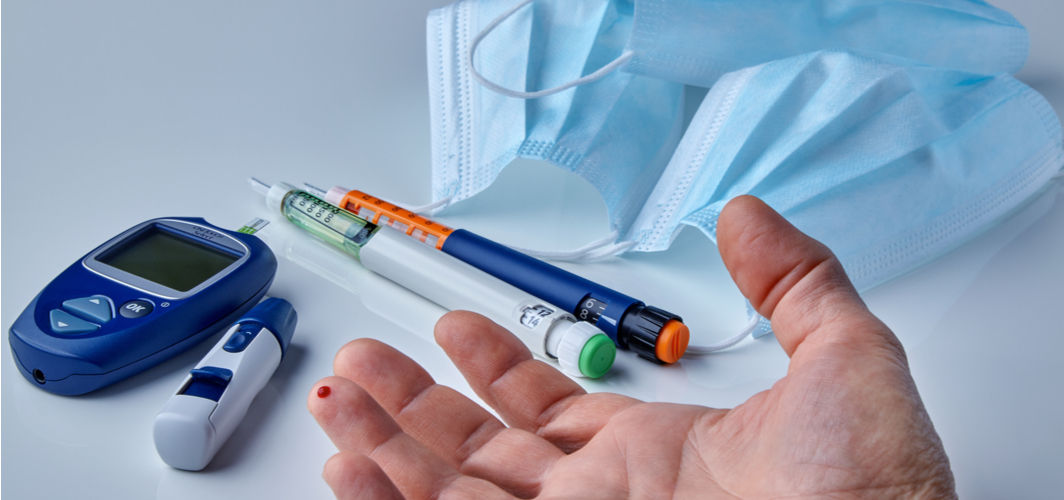Diabetes Management
Why is Controlling Diabetes Even More Important During the COVID-19 Pandemic?
6 min read
By Apollo 24/7, Published on - 01 October 2020, Updated on - 01 June 2023
Share this article
0
5 likes

How does COVID-19 impact people with pre-existing diabetes?
- According to the published study in the New England Journal of Medicine, Coronavirus binds to angiotensin-converting enzyme 2 (ACE-2) receptors for entering the human body. The ACE-2 receptors are abundant in the beta cells of the pancreas. These cells control the release of insulin. When the Coronavirus infects these cells, they lose their insulin-secreting capacity with stress and inflammation (due to cytokine storm). This leads to rapid metabolic deterioration with the development of diabetic ketoacidosis.
- People with diabetes have a low immune response and high inflammation compared to persons who have normal blood glucose. Hence, they have a low ability to fight the Coronavirus thereby prolonging the recovery period. Scientific evidence suggests that diabetic people infected by COVID-19 had significantly increased levels of inflammatory markers (cytokines, interleukin-6, tumor necrosis factor, and C-reactive protein). Additionally, Coronavirus triggers the immune response producing T cells and B cells (antibodies). Triggered immune response and inflammation may also lead to ‘cytokine storm’ causing more cell damage in diabetic people than those without diabetes.
Increased risk of diabetes ketoacidosis (DKA)
Clinical evidence correlating higher risk of severe COVID-19 illness in diabetic patients
- The CORONADO study: This is the first study that highlighted the risk of severe COVID-19 illness among people with diabetes (average age 70) admitted to 53 French hospitals between 10- 31 March 2020. Out of a total of 1,317 COVID-19 patients under study, 1,172 (89%) subjects had type 2 diabetes while 39 (3%) had type 1 diabetes. The results reveal that 10% of this group of patients died within 7 days of hospital admission while 20% required ventilator and ICU assistance.
- USA study: In 1,122 patients with COVID-19 admitted to hospitals in the USA, it was found that the mortality rate was four times higher in those with diabetes or elevated blood sugar (hyperglycaemia) during the hospital stay (28·8%) than those with normal blood sugar (6·2%). Moreover, mortality was higher in those with hyperglycaemia and without known diabetes than in patients with known diabetes.
How can people with diabetes stay healthy during COVID-19?
- Take precautions to prevent diabetic ketoacidosis (DKA): COVID-19 can increase the risk of DKA if not controlled and monitored. Signs of DKA include nausea, vomiting, frequent urination, and abdominal pain. So, if your blood glucose level is greater than 240 mg dL in consecutive readings, seeking a doctor consultation to check for ketones is recommended.
- Stock up medications: Try to keep a monthly stock of insulin and anti-diabetic medications as it is risky to go out in public places frequently. Make sure your insulin vials/pens are stored as recommended. Additionally, speak with your doctor to check if you need to keep any medicines handy like paracetamol, antacids, pain relievers, and medications for nausea, diarrhoea, vomiting, etc. to avoid further complications.
- Regular monitoring of blood sugar level: Rapid and high fluctuations in blood sugar levels in a diabetes patient can be serious. Hence, regular monitoring of blood sugar levels is of utmost importance. Diabetes patients should have a glucose monitoring device (glucometer) at home to keep a record of their blood glucose levels.
- Regular physical activity: Besides a healthy diet and medications, physical activity is equally important in the management of diabetes. At least 150 min of physical activity every week is recommended. This can be split into - 15 min of post-meal walking and light exercise for 30 min every day. Consult your doctor before starting a new regimen.
- Follow COVID-19 safety guidelines: You should strictly adhere to the social distancing guidelines, wear a face mask every time you step out, and follow hand hygiene to lower the risk of getting infected.
- Virtual doctor consultation: It may be a better idea to speak with your doctor if you notice any unusual symptoms, or unfamiliar patterns in your blood glucose values. You can opt for an online doctor consultation if you need to discuss your health with your endocrinologist.
You can also manage your diabetes like a pro with Apollo 24|7's 12-week empower programme.
Diabetes Management
Leave Comment
Recommended for you

Diabetes Management
Top 4 Tests For Diabetes Diagnosis
The top four tests for diabetes diagnosis include the Fasting Blood Sugar Test (FBS), which checks for elevated blood sugar levels after an overnight fast, with a reading of 126 mg/dL or higher on two occasions indicating diabetes. The Hemoglobin A1c Test provides an average blood sugar level over time, with an A1c level of 6.5% or higher suggesting diabetes. The Oral Glucose Tolerance Test measures how your body processes glucose after fasting and a glucose challenge, and finally, the Random Blood Sugar Test measures blood sugar levels at any time, with a reading of 200 mg/dL or higher signaling diabetes.

Diabetes Management
COVID-19 and Diabetes management: Clinical guidelines
Recently, the Ministry of Health and Family Welfare (MoHFW) has revised the guidelines on the diagnosis and management of diabetes among COVID-19 patients at patient management facilities.

Diabetes Management
Diabetes & Thyroid: The Endocrine Connection
Numerous scientific studies have found a correlation between diabetes and thyroid disease. A recent study found that individuals with prediabetes and thyroid disease have an increased risk of developing type 2 diabetes. Another study has revealed that both hypothyroidism and hyperthyroidism can lead to insulin resistance, increasing the likelihood of developing type 2 diabetes.
Subscribe
Sign up for our free Health Library Daily Newsletter
Get doctor-approved health tips, news, and more.
Visual Stories

8 Fruits That are Incredibly Healthy for Diabetes
Tap to continue exploring
Recommended for you

Diabetes Management
Top 4 Tests For Diabetes Diagnosis
The top four tests for diabetes diagnosis include the Fasting Blood Sugar Test (FBS), which checks for elevated blood sugar levels after an overnight fast, with a reading of 126 mg/dL or higher on two occasions indicating diabetes. The Hemoglobin A1c Test provides an average blood sugar level over time, with an A1c level of 6.5% or higher suggesting diabetes. The Oral Glucose Tolerance Test measures how your body processes glucose after fasting and a glucose challenge, and finally, the Random Blood Sugar Test measures blood sugar levels at any time, with a reading of 200 mg/dL or higher signaling diabetes.

Diabetes Management
COVID-19 and Diabetes management: Clinical guidelines
Recently, the Ministry of Health and Family Welfare (MoHFW) has revised the guidelines on the diagnosis and management of diabetes among COVID-19 patients at patient management facilities.

Diabetes Management
Diabetes & Thyroid: The Endocrine Connection
Numerous scientific studies have found a correlation between diabetes and thyroid disease. A recent study found that individuals with prediabetes and thyroid disease have an increased risk of developing type 2 diabetes. Another study has revealed that both hypothyroidism and hyperthyroidism can lead to insulin resistance, increasing the likelihood of developing type 2 diabetes.